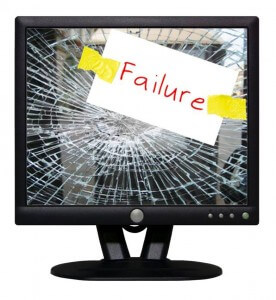 The main goals when it comes to the healthcare industry today, the care of the patient in the most efficient manner possible. Time is also a factor in both the care and efficiency.
The main goals when it comes to the healthcare industry today, the care of the patient in the most efficient manner possible. Time is also a factor in both the care and efficiency.
The purpose of EHR – Electronic health records is to get the needed information quickly and make sure the patient is on the right path for his or her medical care. The other big concern is the safety of these records.
The traditional EHR has its challenges
In an article on Government Health IT (July 16, 2012), Craig Collins, wrote about the problems involving the management of health records in a traditional data-center. His concerns are listed below.
- Forty percent of large patient health data breaches involve lost or stolen devices, according to the U.S. Department of Health and Human Services.
- The actions of insiders – negligence or willful misconduct by employees and contractors – accounted for nearly three times as many patient record security breaches as external attacks, said a report last year by the Privacy Rights Clearinghouse.
- Less than 2 percent of healthcare data breaches were from hacking. More than 10 percent were from insider theft or data lost or stolen when being physically transported somewhere else, according to a 2011 survey by the Identity Theft Resource Center.
- Insider attacks are more costly than outsider attacks, both in dollars and damaged reputation, said a cyber-security survey by CSO magazine last year.
Robert Rowley, MD, also writing for the same site on (July 18, 2012) talks about how the EHR Market is being flooded with vendors.
As a result, large established EHR companies, some of whom have been around for 15 years or more, are experiencing competition from a wave of smaller start-ups – some successful, others not.
The beginning of the end – EHR failures
This scenario seems ripe for consolidation. Market forces, however, are rather Darwinian – novel approaches abound (“mutation”), but many will not achieve market penetration (“selection”). Failure of products, even well-designed ones, are part of the start-up experience – true in all market spaces, not just health care.
These companies are reaching out to two distinct categories of EHRs, ambulatory and the hospital. Dr. Rowley goes into detail in his July 15th article, Comprehensive EHR market analysis.
It is important for all medical practices on any level to do as much research as possible to make sure that their investment is a solid, well-chosen one. Attention to Security, by means of a Secure socket layer (SSL) and AES-256 bit encryption should be used. Accessibility, and integration with other networks is critical in our hi-tech world.
According to EHR Scope, in their article, “Is an EHR Usable” (May 25, 2012), there are three main components.
- Effectiveness
- Efficiency
- User Satisfaction
- Check out this article we wrote called “When was the last time you gave your practice a Checkup” and learn some ways to make your office more efficient
All of this helps to keep lost time under control. Lost time, lost reports mean lost money and that is not needed in today’s economy. Efficiency, effectiveness, action as well as follow through are the keys to keeping it all under control. Make sure you know how the system functions so you can recognize the benefits you will get through using an electronic health records system.
When it comes to user satisfaction, does it fit your needs? Are you able to personalize settings in the system menus, in the screens and reports? When these are available “their comfort level improves.”
What can develop over time is a smoothly functioning network of physicians, specialists and outpatient testing. As everyone becomes more familiar with how efficient the system functions, it will build up a solid rapport among them. There will be more satisfied patients as well.
Concerns about the current system?
What are your main concerns? Do you have any questions to ask as you seek to move forward and upgrade your practice to electronic health records?







